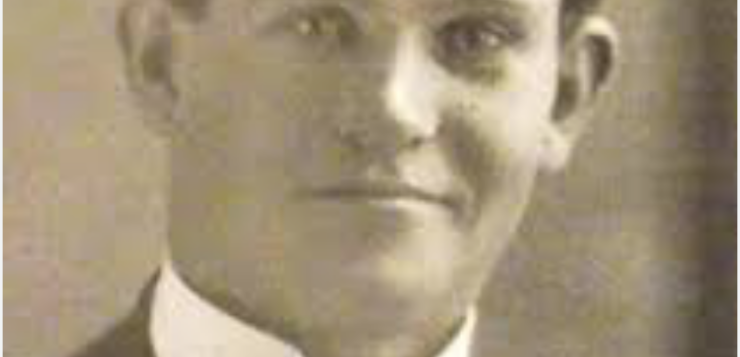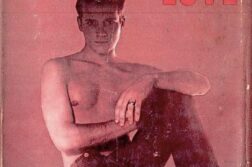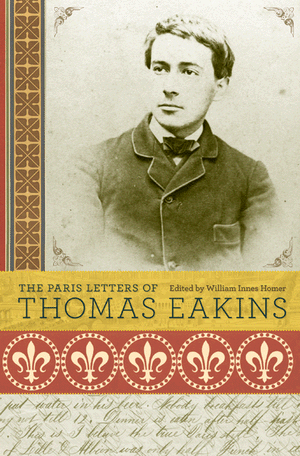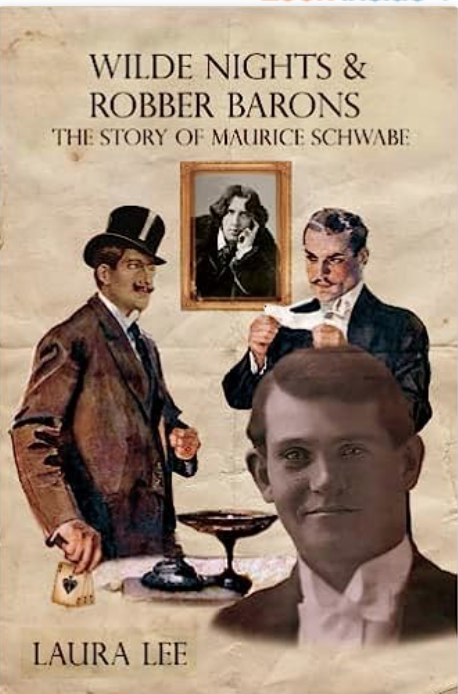 WILDE NIGHTS & ROBBER BARONS
WILDE NIGHTS & ROBBER BARONS
The Story of Maurice Schwabe
by Laura Lee
Elsewhere Press. 408 pages, $16.99
AUTHOR Laura Lee’s new book, which can be read as a sequel to her Oscar’s Ghost: The Battle Over Oscar Wilde’s Legacy (2017), is subtitled The Story of Maurice Schwabe and sub-subtitled “The Man Behind Oscar Wilde’s Downfall, who with a Band of False Aristocrats Swindled the World.” It tells the story of Maurice Schwabe (pronounced Morris Schwa-buh), with whom Lord Alfred Douglas fell in love and who, in concert with Wilde’s co-defendant, Alfred Taylor, probably introduced Wilde and Douglas to the working-class rent boys whose testimony helped to secure Taylor and Wilde’s conviction for gross indecency. Although most of Schwabe’s fascinating story as a member of a criminal gang of card cheats, swindlers, and blackmailers begins after his return to England in 1896, the most interesting part of his life for our purposes is Schwabe’s role in the events leading up to Wilde’s trials and conviction.
Despite Lee’s diligent detective work, there is still much that we don’t know about Schwabe’s connections to Wilde. The first time that Wilde was observed with Schwabe was at the opening of Lady Windermere’s Fan on February 20, 1892. It was not until the early fall of that year that Schwabe introduced Wilde to Alfred Taylor. Both Taylor and Schwabe appear to have procured young men for Wilde, notably Fred Atkins, who first met Wilde (according to his own court testimony) at an unnamed friend’s (i.e., Schwabe’s) flat, and who was taken by Wilde to Paris in November 1892. We don’t hear of Schwabe again until October of 1893, when (as we learn from Bosie’s love letters to him) he’s on his way to Australia via New Zealand. In the intervening year, Bosie and Maurice had become lovers.
Although Schwabe’s name occasionally cropped up in connection with Wilde—he was listed in the Marquess of Queensbury’s Plea of Justification as one of the men that Wilde had solicited to commit gross indecency—very little information about him and his connections to Douglas and Wilde was known, partly because he left England in March 1893, nearly two years before the scandal broke. Then, in March 2011, two letters from Douglas to Schwabe, written in March 1893 while Schwabe was on his way to Australia, were discovered in the National Library of New South Wales. The press release announcing the discovery remarked that Schwabe had been “airbrushed from history.” Until these letters surfaced, it was not even known that Schwabe was ever in Australia. A century earlier, in 1919, Jules Rochaix, who had been Sydney’s first undercover detective, contacted the Mitchell Library in Sydney and offered it some letters, signed only “Bosie,” which he had acquired during his investigation of Schwabe’s suspected (though never proved) role in a fraud scheme. Rochaix thought the letters might be of historical significance since they revealed what he termed “Wilde-Douglas [i.e., homosexual] relations” between Lord Alfred Douglas and Schwabe.
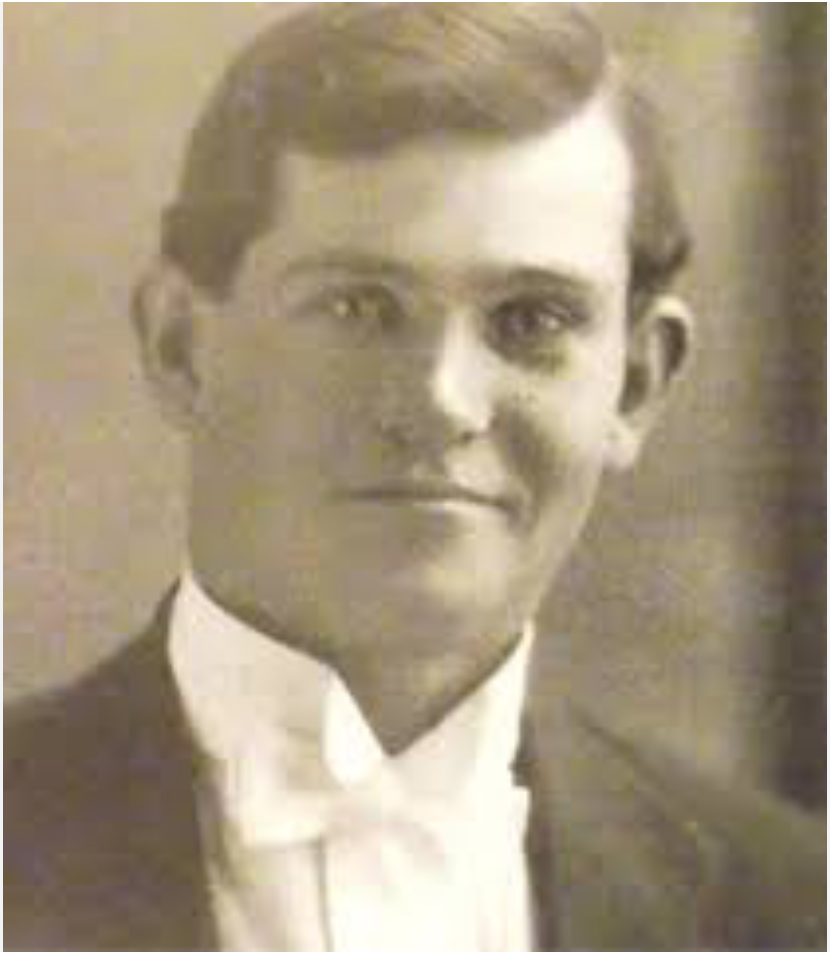
The first letter, signed “Bosie,” calls Schwabe “his darling pretty boy” and proclaims: “I do love you so much & miss you every minute. … I really love you far more than any other boy in the world, and shall always be your loving boy-wife, or your ‘little bitch’ if you prefer it.” In a second letter he pined: “I always think of you every night when I go to bed, please do the same for me. That is if you still love me any more, as I do you.” He ends the letter with “heaps of love & kisses. Ever your most loving boy-wife.” (You can read the letters on the website of the National Library of New South Wales.)
Maurice was most likely not traveling to Australia voluntarily, but had been sent there by his family, though for what reason remains uncertain. The most likely one is that his sexual inclinations, perhaps through his affair with Douglas, had become known to his family. A letter from his mother dated October 25, 1894, complains: “I fear much that you have fallen in again with bad companions in Sydney—if so I implore you to have strength of mind to break away from them & try to get the necessary strength from the teaching of your religion.” Since Schwabe’s known criminal activity did not flourish until he returned to England, the “bad companions” would appear to be men like Lord Alfred Douglas and his ilk.
Uncovering the precise nature of Schwabe’s role in Wilde’s downfall is complicated by the fact that when Wilde was arrested and put on trial, Schwabe had been out of the country for well over a year and did not return until well after Wilde was in jail. True, Schwabe did introduce Wilde to working-class youths, but there is little to link him directly to Wilde’s downfall. Moreover, it is likely that every effort was made to keep Schwabe’s name concealed, since he was related through his aunt (his mother’s sister) to Sir Frank Lockwood, the Solicitor-General and lead counsel for the prosecution of Wilde. Also, Maurice’s father, George Schwabe, had been a Member of Parliament. Revealing these family connections to the public during and after the trials would have proved extremely embarrassing. In the first trial (Wilde’s libel suit), Schwabe’s name was not spoken in court, but rather written on a piece of paper and handed to the judge.
Most of Lee’s thoroughly researched book (there are 400 endnotes) is devoted to Schwabe’s life after Wilde’s conviction. The “robber barons” of the title are not American industrialists but a criminal coterie of card sharks, blackmailers, and con men who, pretending to be European aristocrats, preyed upon the young sons (and also the daughters) of aristocrats and wealthy industrialists. Maurice Schwabe knew them well because he was one of them. He came from a respectable upper-middle-class family whose respectability is what Maurice rejected in favor of a much more exciting and dangerous life of crime, specializing in fraud and blackmail, not to mention spying. Like Wilde, he was addicted to “feasting with panthers.”
Schwabe probably carried his secrets to the grave when he was killed in 1915 by a German officer who, convinced that Schwabe was a traitor because he spoke perfect German, summarily executed him for treason. When Schwabe enlisted, he changed his German name to the more English-sounding Shaw, but he could not convince a German officer that he was English—an irony that Wilde the dramatist would have relished. Although it is doubtful that Maurice Schwabe was “the man behind Wilde’s downfall,” his supporting role certainly deserves a place in the perennially fascinating story.
Nils Clausson is emeritus prof. of English at the Univ. of Regina (Canada).


